Concrete countertops have gained popularity in recent years due to their durability, versatility, and unique aesthetic appeal. Crafting these countertops involves a careful selection of ingredients to ensure strength, durability, and visual appeal. Understanding the ingredients used in concrete countertops is crucial for achieving the desired results.
Cement: Cement is a primary ingredient in concrete countertops. Portland cement is commonly used due to its strength and versatility. It acts as the binder that holds the countertop together.
Aggregates: Aggregates, such as sand, gravel, or crushed stone, are mixed with cement to create the concrete mixture. The size and type of aggregates used can affect the appearance and strength of the countertop.
Water: Water is essential for the hydration process of cement. The correct water-to-cement ratio is crucial for achieving the desired strength and workability of the concrete mixture.
Admixtures: Admixtures are added to the concrete mixture to improve its properties. Common admixtures include plasticizers to increase workability, accelerators to speed up the curing process, and pigments to add color to the countertop.
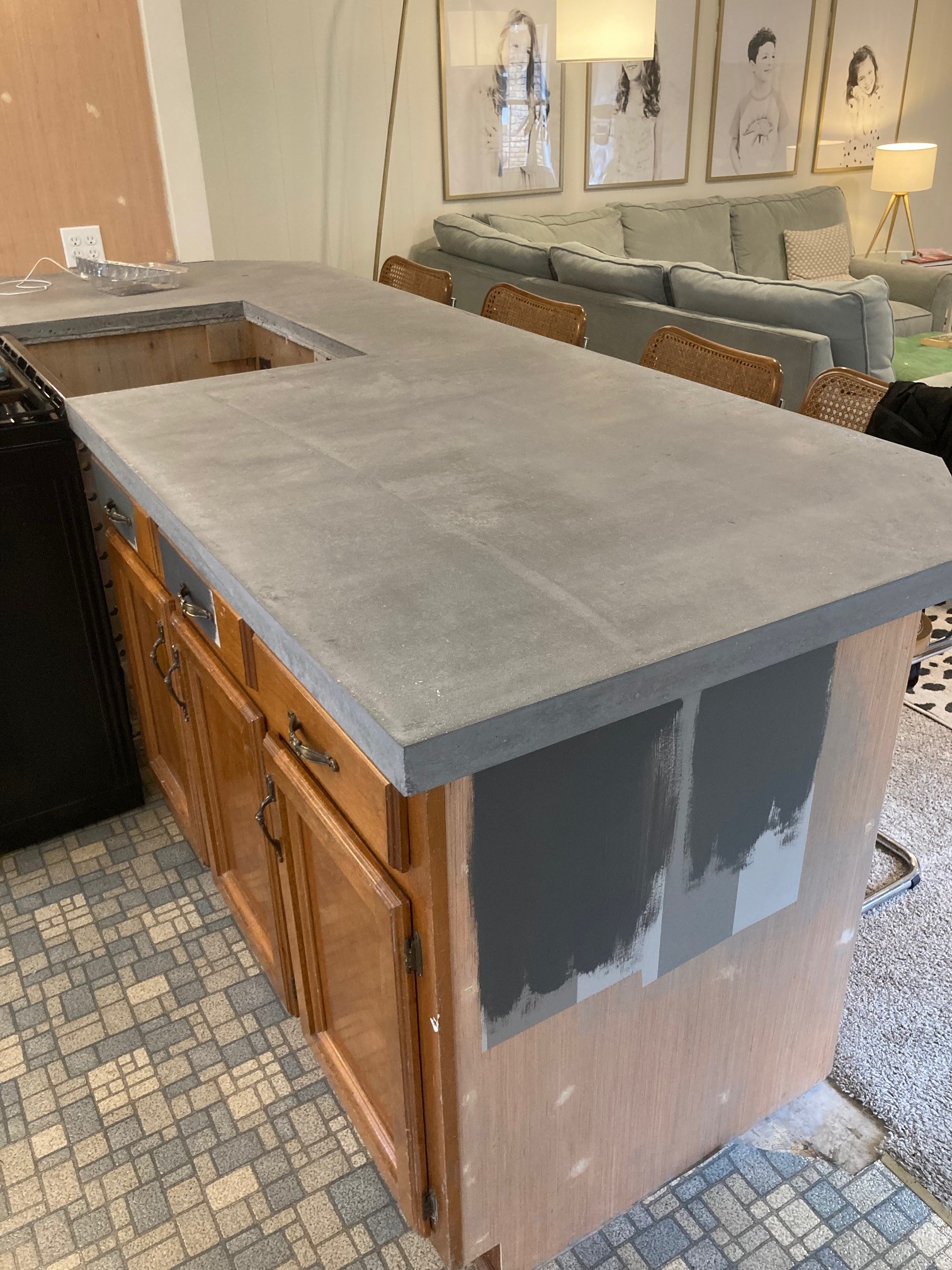
Fibers: Fibers, such as fiberglass or steel, can be added to the concrete mixture to increase its tensile strength and prevent cracking. These fibers also help improve the durability of the countertop.
Pigments: Pigments are added to the concrete mixture to add color and enhance the aesthetic appeal of the countertop. Pigments come in various forms, including powders, liquids, and integral pigments mixed directly into the concrete.
Sealers: Sealers are applied to the finished countertop to protect it from stains, scratches, and water damage. There are various types of sealers available, including topical sealers, penetrating sealers, and epoxy coatings.

Reinforcement: In some cases, reinforcement materials such as rebar or wire mesh are added to the concrete mixture to provide additional strength and support, particularly for larger countertops or those with unusual shapes.
Surface Finishes: Surface finishes, such as polishing, honing, or acid staining, are applied to the finished countertop to achieve the desired texture and appearance. These finishes can significantly impact the overall look of the countertop.
Curing Agents: Curing agents are applied to the countertop after casting to promote proper curing and prevent cracking. These agents help maintain moisture levels in the concrete during the curing process, ensuring optimal strength and durability.
Fillers: Fillers, such as silica fume or fly ash, can be added to the concrete mixture to improve its properties, such as reducing shrinkage, increasing strength, and enhancing workability.
Release Agents: Release agents are applied to the molds before pouring the concrete to prevent the concrete from sticking and facilitate easy removal of the countertop after curing.
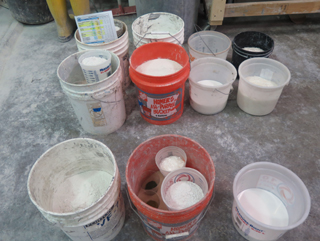
Glass or Stone Aggregates: For a unique and decorative look, glass or stone aggregates can be added to the concrete mixture. These aggregates add texture and visual interest to the countertop surface.
Vibrators: Vibrators are used during the pouring process to remove air bubbles and ensure proper compaction of the concrete mixture. This helps prevent voids and ensures a smooth, even surface.
Protective Coatings: After the countertop has been installed, protective coatings can be applied to further enhance its durability and resistance to staining, heat, and scratches.
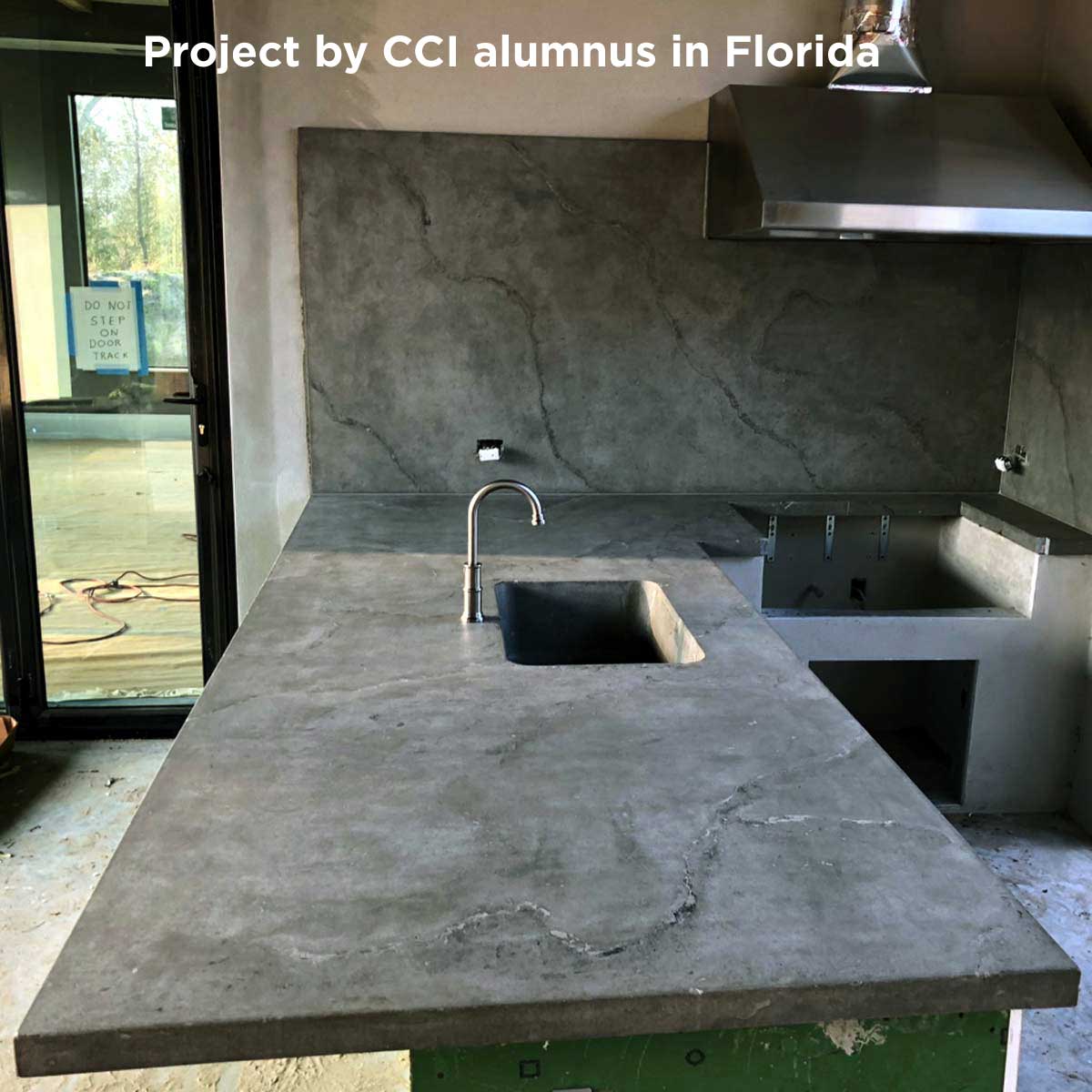
What is the typical thickness of a concrete countertop?
Concrete countertops are typically poured to a thickness of 1.5 to 2 inches, although thicker countertops may be required for additional strength or to accommodate specific design elements.
How long does it take to cure a concrete countertop?
The curing time for a concrete countertop can vary depending on factors such as temperature, humidity, and the specific mix design used. In general, concrete countertops should be allowed to be cured for at least seven days before they are sealed and put into use.
Can concrete countertops crack?
While concrete countertops are durable, they can still crack if not properly reinforced or if subjected to excessive stress or movement. Proper installation, reinforcement, and maintenance can help minimize the risk of cracking.
How do you clean and maintain concrete countertops?
Concrete countertops should be cleaned regularly with a mild soap and water solution to remove dirt, stains, and spills. Avoid using harsh abrasives or acidic cleaners, as these can damage the sealer and the countertop surface. Applying a fresh coat of sealer every 1-3 years can help protect the countertop and maintain its appearance.
Are concrete countertops suitable for outdoor use?
Concrete countertops can be used outdoors, but they require special considerations to withstand exposure to the elements. Proper sealing and maintenance are essential to protect the countertop from moisture, UV rays, and temperature fluctuations. Additionally, using durable materials and reinforcement can help ensure the longevity of outdoor concrete countertops.

Concrete Countertop DIY – A Beautiful Mess
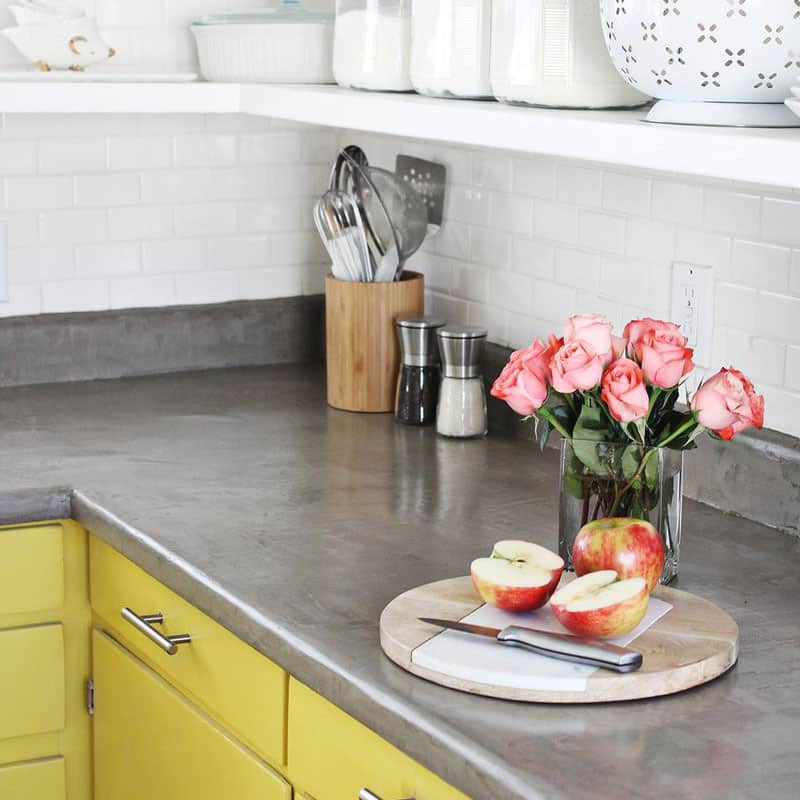
Concrete Countertop Supplies and Materials Walttools

Pin on backyard

Finishing Techniques for Concrete Countertops For Construction Pros
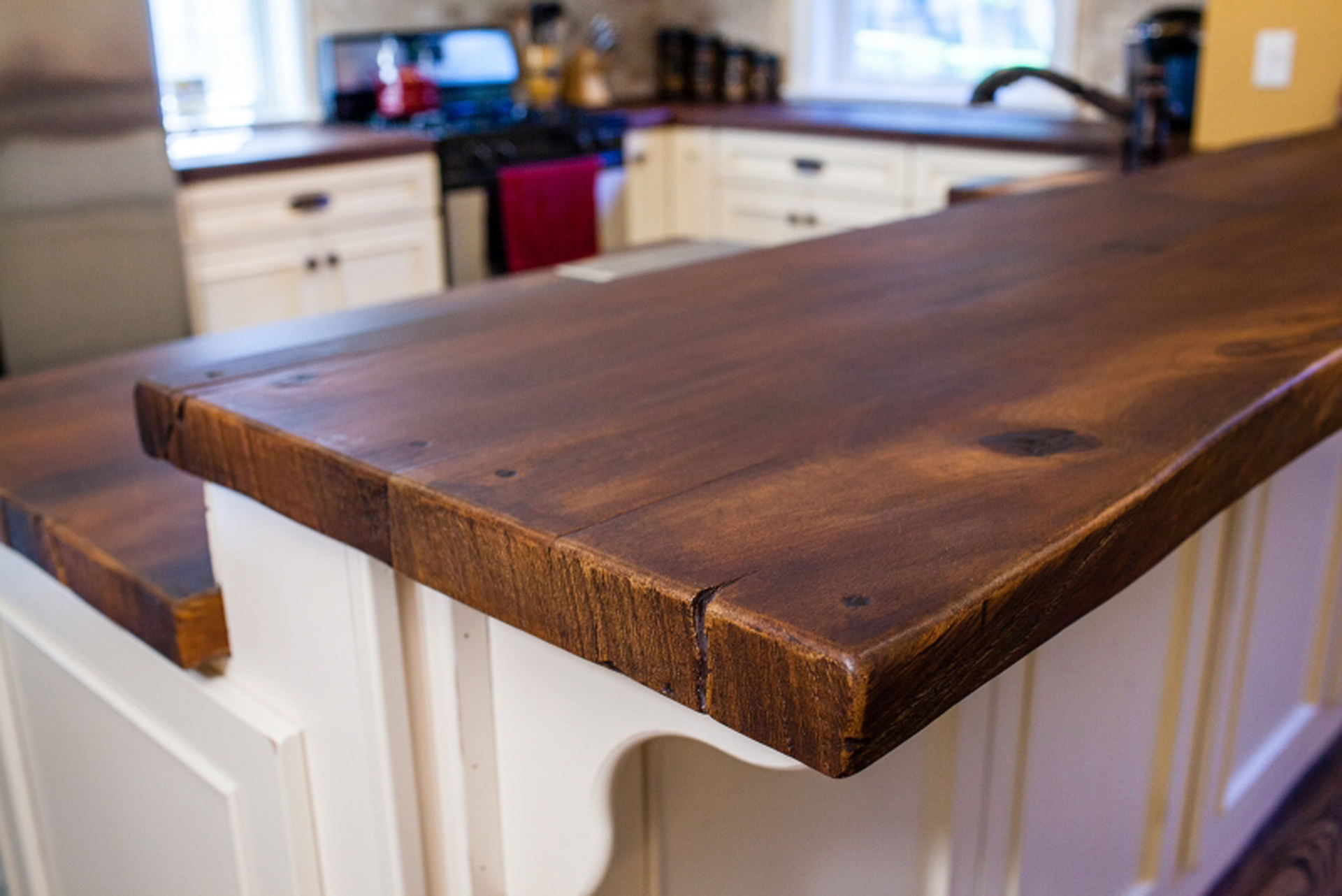
DIY Concrete Countertop – How to Make Concrete Countertops
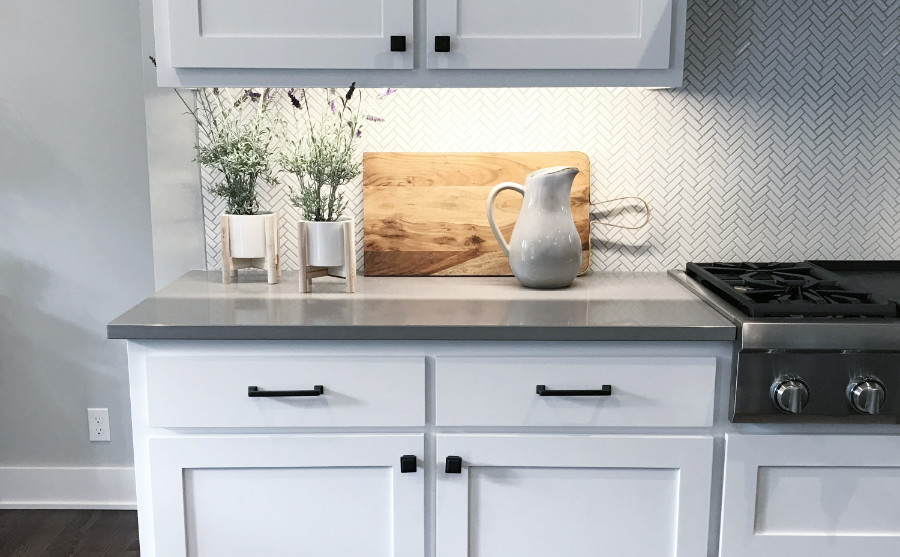
Related articles:
- Concrete Countertop Overlay
- Black Concrete Countertops
- Marble Look Concrete Countertops
- Light Grey Concrete Countertops
- Concrete Countertop Design Ideas
- Light Colored Concrete Countertops
- Epoxy On Concrete Countertop
- Concrete Countertops Designs
- Concrete Countertops That Look Like Wood
- White Concrete Countertops